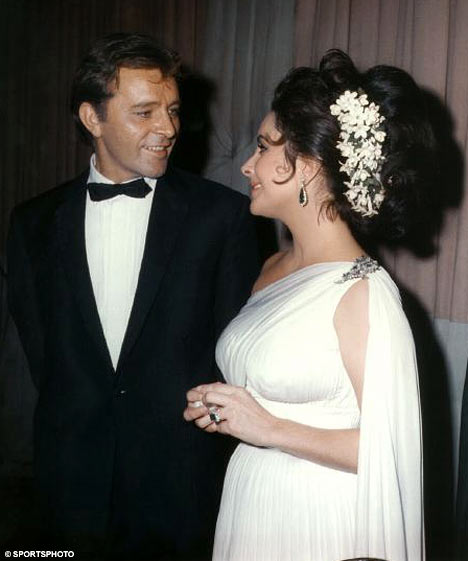
Elizabeth Taylor died today, and while I can’t say I was her number one fan, even after adding a few zeros I wasn’t close to her number 1,000,000 fan, I can say that she loved love. A recent-enough Vanity Fair article - which was actually an excerpt from the book Furious Love: Elizabeth Taylor, Richard Burton, and the Marriage of the Century - had me ferociously flipping through the pages of her love of love.
Taylor was married eight times, and her greatest romance was Richard Burton. She once said that her biggest problem with Burton was that they loved each other “too much.” It was indeed her longest marriage (the first one to Burton), no others lasted more than six years. And it was on and off, and done and redone, with marriage, divorce, remarriage and redivorce. But more than that, along with her other six marriages (the total of eight includes her marrying Burton twice), Taylor’s love life provides insight into this crazy little thing called love. Love can be crazy, and drive us, crazy. It seems that love is allowed, perhaps expected, to be crazy, if you’re a legend, a superstar, or a passionate beauty. Think about it, even in the seemingly-stable superstar marriages (Brangelina), magazines are always trying to break couples up, shake things up. Caught cheating! Fleeing the house! Fighting in front of the children!
As someone who’s had a stable family upbringing and whose parents will be married 40 years this July, I can say that I understand loving love, but lately I also understand finding the “one” and sticking it out for a lifetime. I didn’t always get that. I’ve never been married, although I have been in love. I didn’t care about marriage (truth is, I don’t care about being married as much as I would prefer being partnered), and until everyone can get married, outside of “for insurance purposes” I’m not sure that I want to. Yet, I desire the stability and grounding that comes with that ideal of deep love. I feel that when I’m in a solid relationship, I do my best, most productive work. I wonder if Ms. Taylor felt that same way, if that’s why she sought out the marriage part in so many of her relationships.
I also see something else here, the other side of the coin. The part that plays out in passion, in newness, in falling in love again and again. The part that excites me about continuously meeting someone smarter, bigger, newer. The part that keeps us alive, and feeling young (and if we orgasm, then looking young too). The part that we suppress when we commit, because “being too much in love” doesn’t make for realistic living. It doesn’t pay bills, take care of children, let us sleep much. Being too much in love can make us delusional and disillusioned, but it’s also the part that’s exciting and keeps us wanting to be alive.
Had she not been married eight times, would we think more or less of Elizabeth Taylor? Does it matter less because she was a legend? We seem to have more empathy for people with pretty faces. Would we have judged her for shacking up with all of these men without wedding bands, or dismissed it, like we do the mad ramblings of a violent woman-hater like Charlie Sheen? I’m reading Sex at Dawn: The Prehistoric Origins of Modern Sexuality, a most marvelous book on the evolution of sex, monogamy, relationships - or at least that’s what I gather from what friends have told me and from the few chapters I have completed, and I think of Ms. Taylor and her permission to love, and love and love, and what that means about love for the rest of us.




